Kyoto Prize in Arts and Philosophy
The Kyoto Prize in Arts and Philosophy is awarded once a year by the Inamori Foundation for lifetime achievements in the arts and philosophy. The Prize is one of three Kyoto Prize categories; the others are the Kyoto Prize in Advanced Technology and the Kyoto Prize in Basic Sciences. The first Kyoto Prize in Arts and Philosophy was awarded to Olivier Messiaen in 1985, the "greatest composer to have emerged from 20th century France".[1] The Prize is widely regarded as the most prestigious award available in fields which are traditionally not honored with a Nobel Prize.[2]
Prizes
A Kyoto laureate is awarded a gold medal, a diploma, and a prize money of 50 million yen (US$530,000 or €413,000 as of March 2013), making it one of the richest literary prizes in the world.
Kyoto laureates in Arts and Philosophy
The Kyoto Prize is awarded annually in three categories: Advanced Technology, Basic Sciences, and Arts and Philosophy. The category Arts and Philosophy consists of four fields which are awarded in alternating cycles: Music, Arts, Theater and Cinema, and Thought and Ethics.
Laureates
Music
| Year |
Laureate |
Country |
|
|
| 1985 |
.jpg) |
Olivier Messiaen |
 France France |
1908–1992 |
A Composer Who Left a Significant Mark on the 20th Century Music with His Original Theoretical Framework Fundamentally Dependent upon Catholicism[3] |
| 1989 |
.jpg) |
John Cage |
 United States United States |
1912–1992 |
A Composer Who Established a New Style of Contemporary Music by His New Concept of "Chance Music" and Non-Western Musical Thought[4] |
| 1993 |
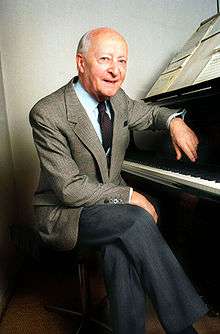 |
Witold Lutosławski |
 Poland Poland |
1913–1994 |
A Composer Who Opened New Possibilities of a Contemporary Musical Expression of Atonality and Aleatory Influenced by East European Folk Music[5] |
| 1997 |
 |
Iannis Xenakis |
 France France |
1922–2001 |
A Composer Who Created a Totally New Music Using Computer-Aided Approach by Viewing Music Statistically as a Set of "Sound Elements"[6] |
| 2001 |
.jpg) |
György Ligeti |
 Austria Austria |
1923–2006 |
A Composer with Superb Originality and Firm Commitment to Innovation who Continues to Present New Challenges[7] |
| 2005 |
.jpg) |
Nikolaus Harnoncourt |
 Austria Austria |
born 1929 |
A musician of exceptional creativity who has contributed to the establishment of the historically informed performance of European early music, and who has extended his principles and interpretation to modern music[8] |
| 2009 |
.jpg) |
Pierre Boulez |
 France France |
1925–2016 |
A Musician Who Has Consistently Set Trends through His Composition, Conducting, Writing, and Organizational Operation[9] |
| 2013 |
 |
Cecil Taylor |
 United States United States |
born 1929 |
An Innovative Jazz Musician Who Has Fully Explored the Possibilities of Piano Improvisation[10] |
Arts
| Year |
Laureate |
Country |
|
|
| 1986 |
 |
Isamu Noguchi |
 United States United States |
1904–1988 |
An Artist Who Fused Eastern and Western Tradition not only in Sculpture but also in Broad Areas of Physical Design[11] |
| 1990 |
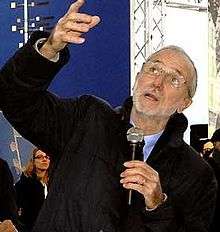 |
Renzo Piano |
 Italy Italy |
born 1937 |
An Architect Who Elicited a New Potentiality for Architecture by Lifting Technology to the Realm of Fine Art[12] |
| 1995 |
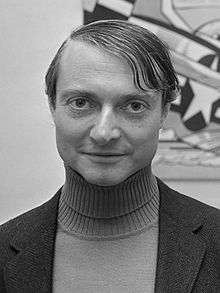 |
Roy Lichtenstein |
 United States United States |
1923–1997 |
A Painter Whose Pop-Art Motifs Continuously Challenged Established Concepts of Art Its Role in Modern Society[13] |
| 1998 |
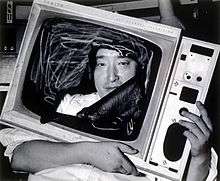 |
Nam June Paik |
 United States United States |
1932–2006 |
An Artist Who Launched the Field of ”Media Art” With His Inventive Use of Image Media in Modern Art[14] |
| 2002 |
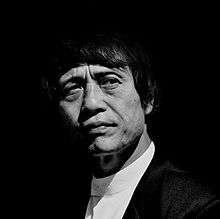 |
Tadao Ando |
 Japan Japan |
born 1941 |
An architect who explored the limits of humankind's relationship with nature through his original forms and structures[15] |
| 2006 |
 |
Issey Miyake |
 Japan Japan |
born 1938 |
A designer who has made great contribution to the innovative development of clothing by fusing Eastern and Western cultures and applying cutting edge technology[16] |
| 2010 |
 |
William Kentridge |
 South Africa South Africa |
born 1955 |
An Artist Who Has Created an Original Art by Fusing Traditional Drawings with Animation and Other Media[17] |
| 2014 |
 |
Fukumi Shimura |
 Japan Japan |
born 1924 |
An Artist in Constant Pursuit of the Fundamental Human Value of Harmonious Coexistence with Nature through the Artistic Creation of Tsumugi Kimono on the Basis of Folk Wisdom[18] |
Theater, cinema
| Year |
Laureate |
Country |
|
|
| 1987 |
.jpg) |
Andrzej Wajda |
 Poland Poland |
1926–2016 |
A Film Director Who Kept a Firm Eye on the Tumultuous Era of Poland in the 20th Century and Has Depicted Liberty, Courage and Dignity of Human Beings[19] |
| 1991 |
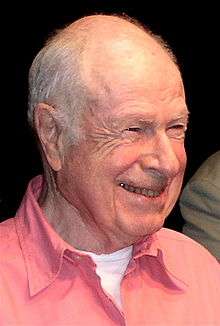 |
Peter Stephen Paul Brook |
 United Kingdom United Kingdom |
born 1925 |
A Stage Director, Who Has Inspired New Anima to Classic Repertories through His Innovative Rendering Which Amalgamates Essential Expressions of West and East Theatre Traditions[20] |
| 1994 |
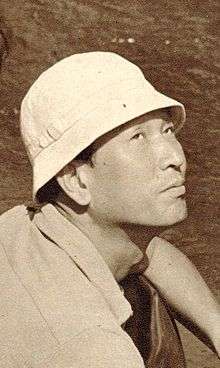 |
Akira Kurosawa |
 Japan Japan |
1910–1998 |
A Film Director Who Has Pursued the Humanity with an Acute Insight and Highly Original Images[21] |
| 1999 |
 |
Maurice Béjart |
 France France |
1927–2007 |
A Choreographer Who Has Contributed the Dance to Regain Its Status as Fine Art through His Major Performances such as the ”Sacre du Printemps” and the ”Bolero”[22] |
| 2003 |
|
Tamao Yoshida |
 Japan Japan |
1919–2006 |
The Foremost Master Puppeteer in Bunraku, a Major Classical Performance Art of Japan[23] |
| 2007 |
 |
Pina Bausch |
 Germany Germany |
1940–2009 |
A choreographer who has broken down the boundaries between dance and theater and pioneered a new direction for theatrical art[24] |
| 2011 |
 |
Tamasaburo Bando V |
 Japan Japan |
born 1950 |
A Creator of Elegant Beauty Whose Artistry with Kabuki at Its Core Crosses Many Genres of Performing Arts[25] |
| 2015 |
 |
John Neumeier |
 United States United States |
born 1942 |
A Creator of Elegant Beauty Whose Artistry with Kabuki at Its Core Crosses Many Genres of Performing Arts[26] |
Thought and ethics
| Year |
Laureate |
Country |
|
|
| 1988 |
|
Paul Thieme |
 West Germany West Germany |
1905–2001 |
One of the Most Eminent Indologists of the 20th Century Who Made a Significant Contribution to the Comprehension of Indo-Aryan and the Ancient Indian Philosophy through His Detailed Studies of Vedic[27] |
| 1992 |
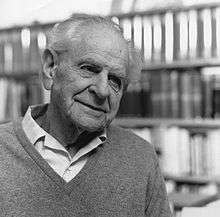 |
Karl Raimund Popper |
 United Kingdom United Kingdom |
1902–1994 |
A Philosopher Who Gave a Great Impact on the Intellectual World of Natural and Social Science by What He Calls Falsifiability Criterion and Advocated the Realization of Open Society Based on the "Critical Rationalism"[28] |
| 1996 |
 |
Willard Van Orman Quine |
 United States United States |
1908–2000 |
A Philosopher Who Made Significant Contribution to the Development of Contemporary Philosophy by Rejecting the Method of Analytic-Synthetic Distinction and Naturalizing Epistemology Based on a Holistic and Systematic Linguistic Framework[29] |
| 2000 |
 |
Paul Ricœur |
 France France |
1913–2005 |
An Imposing Construct of Hermeneutic Phenomenology that Embraces a New Concept of Ethics[30] |
| 2004 |
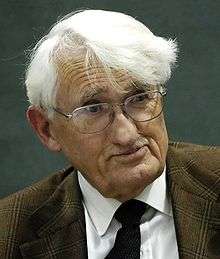 |
Jürgen Habermas |
 Germany Germany |
born 1929 |
Achievements in social philosophy, in particular establishment of the communicative action theory and discourse ethics, and its application in practical activities for a public-minded ideal society[31] |
| 2008 |
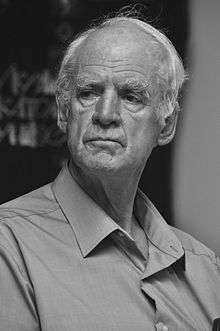 |
Charles Margrave Taylor |
 Canada Canada |
born 1931 |
Construction of a Social Philosophy to Pursue the Coexistence of Diverse Cultures[32] |
| 2012 |
 |
Gayatri Chakravorty Spivak |
 India India |
born 1942 |
A Critical Theorist and Educator Speaking for the Humanities Against Intellectual Colonialism in Relation to the Globalized World[33] |
| 2016 |
 |
Martha Craven Nussbaum |
 United States United States |
born 1947 |
A Philosopher Who Has Developed a New Theory of Justice Advocating the Capabilities Approach[34] |
See also
References
Philosophy and philosophy-related awards |
|---|
|
|
_2013-11-03_17-37.jpg)
.jpg)
.jpg)


.jpg)
.jpg)
.jpg)








.jpg)











